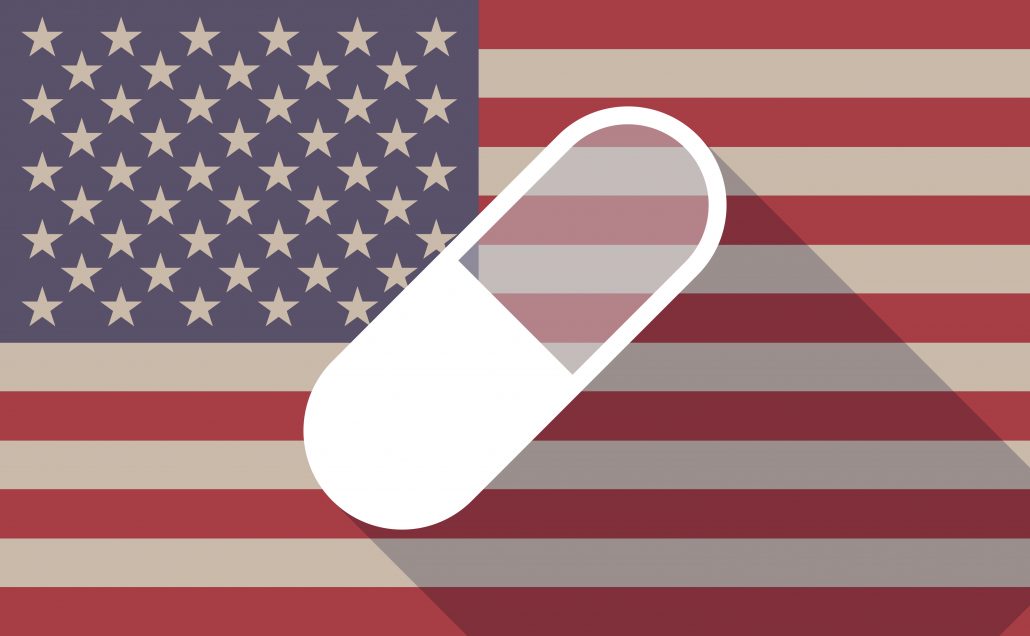Back in August, the Commission on Combating Drug Addiction and the Opioid Crisis began urging President Trump to declare a national public health emergency to combat the opioid crisis that has crippled countless communities around America. While the President did soon enough say that he believed the opioid epidemic was indeed a national emergency, the actual official process has yet to begin. However, just this week news broke that President Trump will soon formally declare the “national emergency” status of the opioid crisis.
Reports indicate President Trump plans to make the official declaration next week. It seems appropriate following the explosive exposé following the story on ’60 Minutes’ of former DEA agent Joe Rannazzisi pointing a finger at Big Pharma companies, Congress, and lobbyists for fueling the opioid epidemic.
In fact, Republican Representative Tom Marino, who was the top pick for the Trump administrations Drug Czar, was name-dropped in a less than flattering light in the ’60 Minutes’ piece. Reports today now show Marino has withdrawn from consideration following the story.
So what does this newest revelation mean for combatting the opioid crisis?
Raising Awareness
One of the initial reasons for declaring a national emergency is pretty straight-forward; raising awareness. Not that we don’t see enough shocking news stories or warnings from local officials being issued in various states, but more attention on the issue will help channel more resources into actually helping address it.
As the commission states in their report:
“It would also awaken every American to this simple fact: if this scourge has not found you or your family yet, without bold action by everyone, it soon will,”
“You, Mr. President, are the only person who can bring this type of intensity to the emergency, and we believe you have the will to do so and to do so immediately.”
When the President of the United States says something is a priority, people take notice. Regardless of whether people always agree on politics, when we can all get behind a major issue and put effort into a more inclusive conversation, there is a better chance more can be done.
Overcoming Addiction Stigma
One of the most important aspects of fighting addiction is overcoming the addiction stigma itself. Many people who are suffering do not get the help they need because they are afraid of the stereotypes associated with drug abuse. A lot of people still doubt what the majority of the medical and scientific communities have adopted as fact; that addiction is a health issue, not a moral failing.
By declaring the opioid crisis a national emergency, President Trump has an opportunity to promote education along with public awareness. The more we can help people to understand how addiction affects the mind and body, the better odds we have of supporting those struggling with compassionate and effective treatment options.
Funding for Fighting Opioids
Perhaps one of the biggest hopes for many addiction recovery advocates is that by President Trump declaring the opioid crisis a national emergency he will influence lawmakers to allocate more funding to resources combatting addiction.
A federal declaration would also allow the government to pull funding from other areas as well, such as funding used for the Public Health Emergency Fund, or even the federal Disaster Relief Fund. So while America has been struck pretty hard by hurricanes and natural disasters, some of this same funding may end up going toward creating addiction resources.
One thing many are hoping is that these new funds will also go to promoting more addiction treatment options across the country. Some states may pursue incentives for performance-based enhanced care management (ECM) program, like one recently implemented in New Jersey. Others may put those resources into prevention and education initiatives.
One thing should seem pretty clear; treatment options should be a priority. We already know we cannot arrest our way out of this problem. The War on Drugs did not work, and many do not expect it will now either. With President Trump declaring the national emergency, hopefully, the new effort will go into protecting mental health and substance abuse parity with healthcare and insurance providers. If we have more ways to help those already desperately in need, we could see a better chance for a way out.


